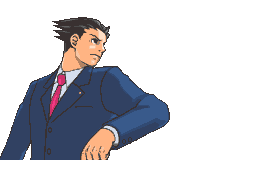Propaganda Man
Senior Member
http://en.wikipedia.org/wiki/Copyright
Copyright is a legal concept enacted by most national governments, that gives the creator of an original work exclusive rights to it, usually for a limited period of time. At its most general, it is literally "the right to copy", but also gives the copyright holder the right to be credited for the work, to determine who (if anyone) can perform it or adapt it to other forms, to benefit financially from the work, and other related rights. It is one form of intellectual property (distinct from patents, trademarks, and trade secrets), and applies to any particular expression of an idea or information, which is substantial and self-contained in a fixed form.
Copyright is a legal concept enacted by most national governments, that gives the creator of an original work exclusive rights to it, usually for a limited period of time. At its most general, it is literally "the right to copy", but also gives the copyright holder the right to be credited for the work, to determine who (if anyone) can perform it or adapt it to other forms, to benefit financially from the work, and other related rights. It is one form of intellectual property (distinct from patents, trademarks, and trade secrets), and applies to any particular expression of an idea or information, which is substantial and self-contained in a fixed form.
